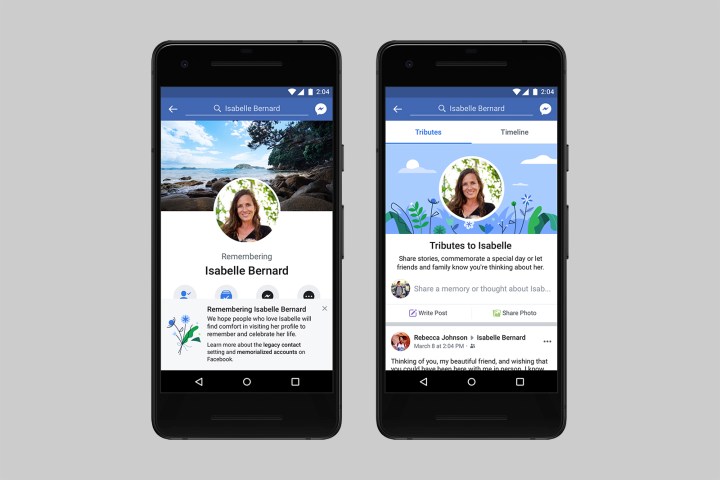
What happens to your Facebook after you die? Friends and family now have a place to leave tributes on memorialized profiles, an update announced on April 9 along with several other changes to memorialized accounts.
The new Tributes section is a dedicated place on a deceased user’s profile for sharing posts while keeping the user’s original timeline intact. Facebook suggests the tribute section is a place to write stories, commemorate a special day, or simply share a post when thinking about that person.
Along with the dedicated section for writing tribute posts, Facebook also rolled out additional tools for the legacy contact, or the user operating the deceased person’s account. Legacy contacts can now manage that new tribute section, acting as a moderator and adjusting a post’s tags and privacy settings.
While Facebook isn’t changing its policy by leaving the legacy contact options off profiles for users under 18, the network will now allow parents to memorialize accounts for children.
Even before the memorialization process begins, Facebook said it is using artificial intelligence to keep a deceased user’s account from popping up in potentially painful places, like the suggested invite list for an event and in birthday notifications.
“We’ve heard from people that memorializing a profile can feel like a big step that not everyone is immediately ready to take. That’s why it’s so important that those closest to the deceased person can decide when to take that step,” Facebook Chief Operating Officer Sheryl Sandberg wrote in a blog post. “Now we are only allowing friends and family members to request to have an account memorialized.”
The update expands existing tools for memorialized accounts. Facebook users have had the option to choose a legacy contact since 2015, a move that added tools to allow the legacy contact to pin a post to the top of the feed and to change the profile picture on the memorialized account.
Editors' Recommendations
- Facebook’s massive outage saw millions sign up for rival apps
- Facebook’s newest reaction is a virtual hug
- The U.S. Senate really doesn’t like Facebook’s Libra cryptocurrency plans



